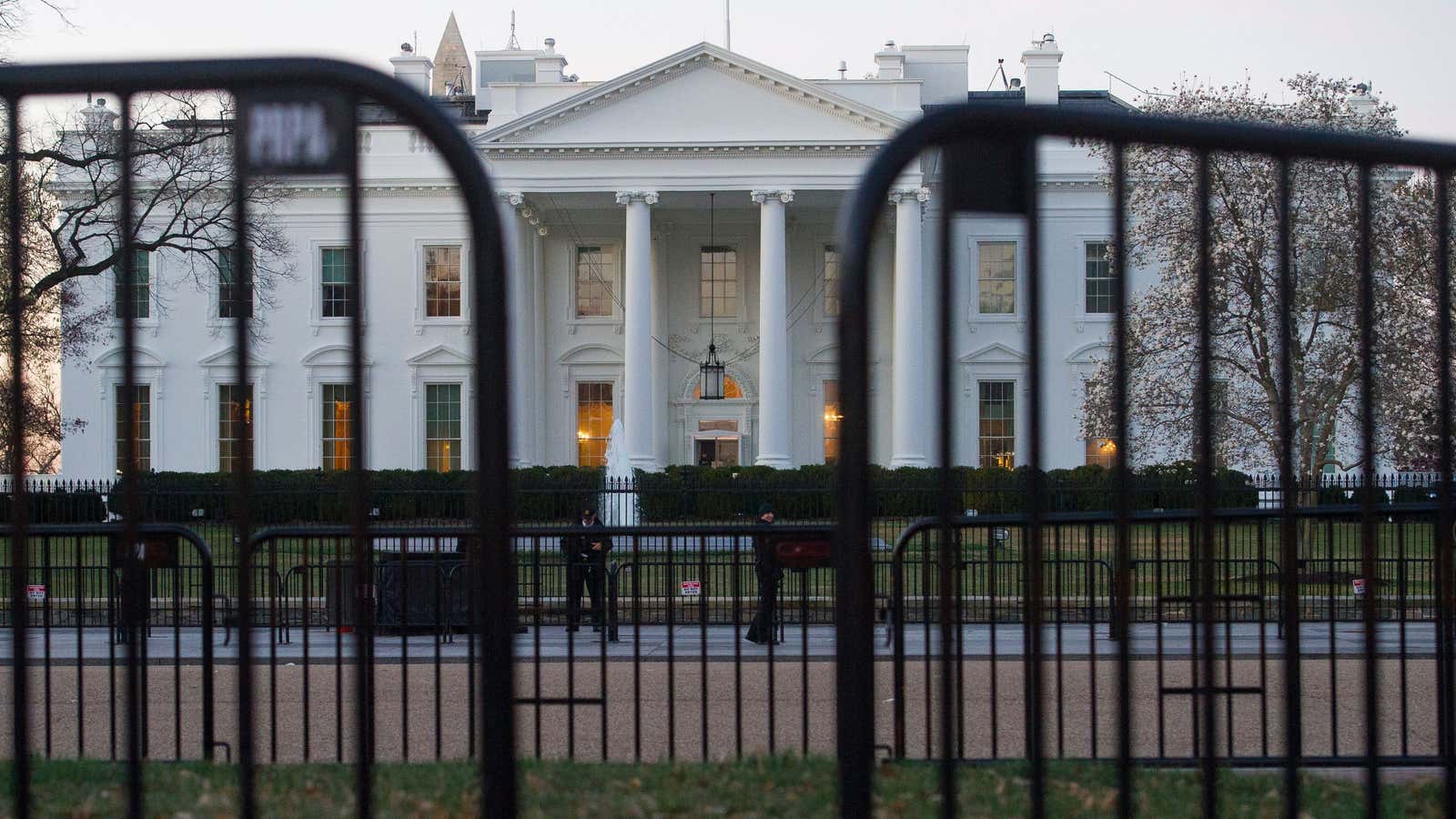The Trump administration has handed out dozens of security clearances to people who didn’t qualify, overruling federal officials who had already denied them access to the nation’s secrets, according to government whistleblower Tricia Newbold.
Newbold, an adjudications manager in the White House Personnel Security Office for the past 18 years, has served both Republican and Democratic administrations. Last month, she told the House Oversight and Reform Committee that she and her co-workers turned down 25 officials’ applications for clearances due to, among other things, concerns the candidates could be blackmailed over financial problems, were susceptible to foreign influence, or had engaged in past criminal conduct, per committee documents released today (Apr. 1).
The rejected applications were later approved by Trump appointee and White House personnel security chief Carl Kline, who reportedly granted the clearances at the behest of the president. Lawmakers began looking into the administration’s clearance process earlier this year, following reports that president Trump had ordered then-chief of staff John Kelly to grant senior adviser and son-in-law Jared Kushner a top-secret clearance over the objections of investigators.
“Despite White House efforts to obstruct the Committee’s investigation, we have not been idle,” committee chairman Rep. Elijah Cummings, a Maryland Democrat, wrote to White House counsel Pat Cipollone.
To get a US government security clearance, an applicant first fills out a 127-page form called an SF-86. The resulting background check is designed to find everything from excessive or inappropriate foreign contacts to extramarital affairs. Applicants can be turned down for all sorts of issues, like outstanding debt, which is a red flag for potential susceptibility to blackmail. However, Newbold told the committee that the White House Security Office has stopped conducting credit checks on White House applicants. (The FBI does a limited number of credit checks on certain clearances, but not all, and this loophole endangers national security, Newbold said.)
During her interview with committee staff, Newbold described an “unusually high” number of interim clearances granted by the Trump Administration, which gives people access to classified information while their background investigations are still pending. Some of these staffers were later deemed unsuitable for a clearance, but Newbold said she “was not aware of whether, or the extent to which, the White House had conducted an analysis of the volume or sensitivity of highly classified information accessed by these individuals.”
Newbold told lawmakers that she has “never seen our office so ill-staffed and with such lack of experience,” and that since Trump took office, the sensitive personnel files employees use to conduct background checks have been moved to a non-secure location in the building’s sub-basement.
Newbold first brought her concerns to supervisors in July 2017. In January 2018, Newbold said Kline began to retaliate against her. Kline allegedly moved important files to a new location that were too high for Newbold, who has a rare form of dwarfism, to reach. A year later, she was suspended for two weeks without pay, after which she was removed from her regular supervisory role.
“I’m terrified of going back,” Newbold told the committee. “I know that this will not be perceived in favor of my intentions, which is to bring back the integrity of the office.”
Read the full text of Newbold’s accusations here:
